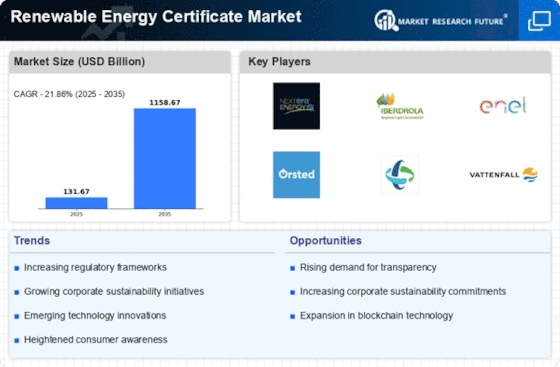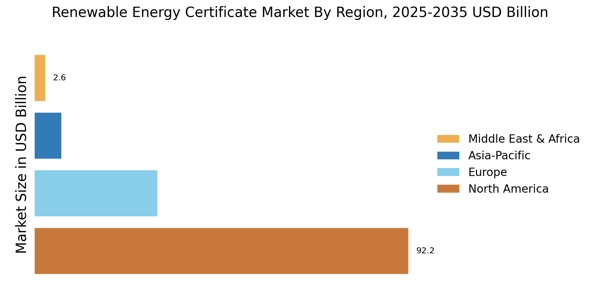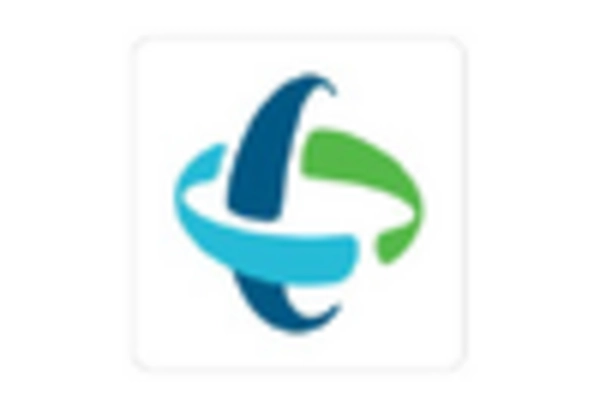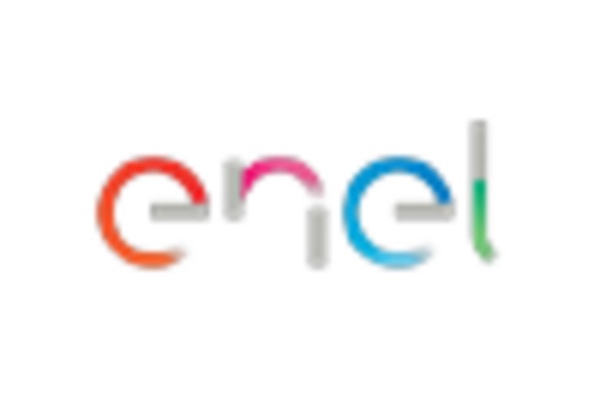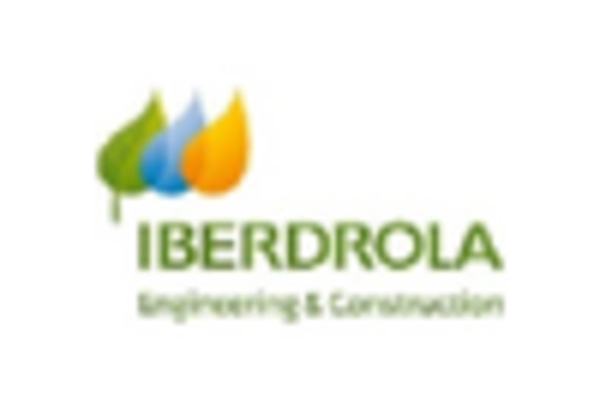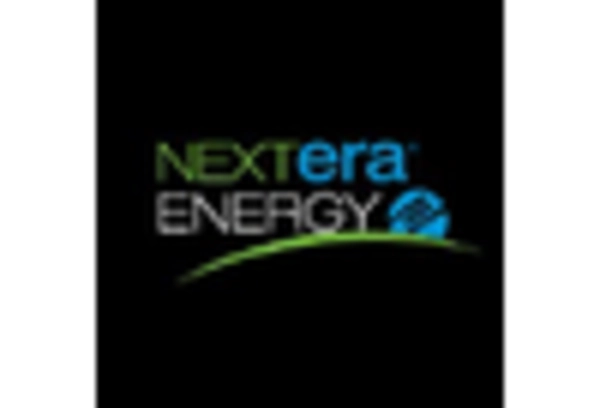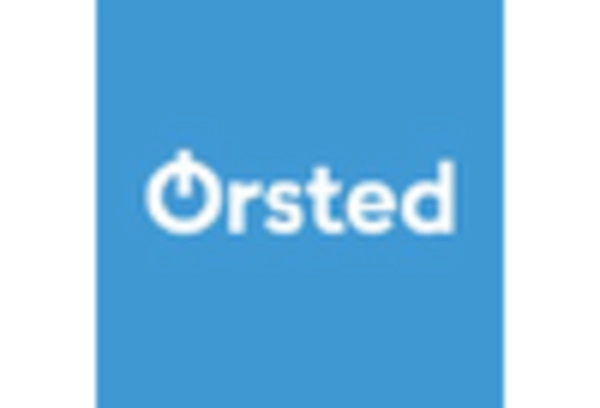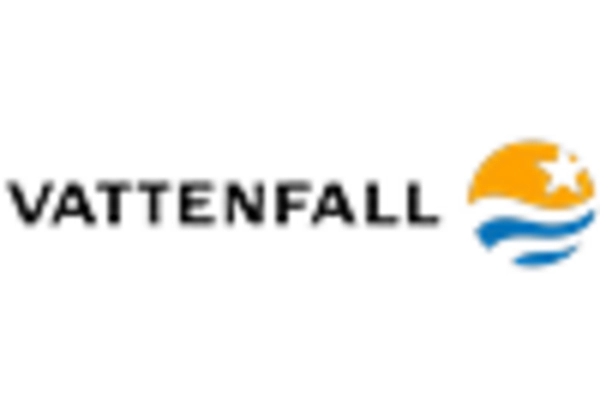Government Incentives and Policies
The Renewable Energy Certificate Market is significantly influenced by government incentives and policies aimed at promoting renewable energy adoption. Various countries have implemented favorable regulations, such as tax credits, subsidies, and renewable portfolio standards, which encourage the generation and purchase of renewable energy. For instance, in 2025, several nations have established ambitious renewable energy targets, aiming for a 50% increase in renewable energy generation by 2030. These policies not only stimulate investment in renewable energy projects but also enhance the attractiveness of Renewable Energy Certificates as a viable option for compliance. Consequently, the Renewable Energy Certificate Market is poised for expansion as more entities seek to align with these governmental mandates.
Growing Awareness of Climate Change
The Renewable Energy Certificate Market is increasingly shaped by the growing awareness of climate change and its impacts. As public consciousness regarding environmental issues rises, there is a corresponding demand for renewable energy solutions. In 2025, surveys indicate that over 70% of consumers prioritize sustainability in their purchasing decisions, leading to a heightened interest in renewable energy sources. This awareness drives both individuals and organizations to seek Renewable Energy Certificates as a means to support clean energy initiatives. Consequently, the Renewable Energy Certificate Market is likely to expand as more stakeholders recognize the importance of contributing to climate change mitigation through renewable energy investments.
Corporate Renewable Energy Procurement
The Renewable Energy Certificate Market is witnessing a shift towards corporate renewable energy procurement strategies. Many companies are now opting to directly purchase renewable energy through power purchase agreements (PPAs) or by acquiring Renewable Energy Certificates. This trend is particularly pronounced among large corporations that aim to meet their sustainability goals and reduce greenhouse gas emissions. In 2025, it is projected that corporate procurement of renewable energy will account for a significant portion of the overall demand for Renewable Energy Certificates. This shift not only supports the growth of the Renewable Energy Certificate Market but also fosters a more robust renewable energy sector, as companies invest in new projects to fulfill their energy needs.
Technological Innovations in Renewable Energy
The Renewable Energy Certificate Market is benefiting from rapid technological innovations in renewable energy generation. Advancements in solar, wind, and energy storage technologies have significantly reduced the cost of renewable energy production. For example, the cost of solar photovoltaic systems has decreased by approximately 80% over the past decade, making solar energy more accessible and appealing. This reduction in costs is likely to drive an increase in renewable energy generation, subsequently boosting the demand for Renewable Energy Certificates. As more renewable energy projects come online, the Renewable Energy Certificate Market is expected to grow, reflecting the increasing capacity and efficiency of renewable energy technologies.
Increased Corporate Sustainability Initiatives
The Renewable Energy Certificate Market is experiencing a notable surge in corporate sustainability initiatives. Companies are increasingly committing to renewable energy usage as part of their corporate social responsibility strategies. This trend is driven by consumer preferences for environmentally friendly practices, which compel businesses to adopt sustainable energy solutions. In 2025, it is estimated that over 60% of Fortune 500 companies have set ambitious renewable energy targets, thereby increasing their demand for Renewable Energy Certificates. This shift not only enhances corporate image but also aligns with regulatory frameworks that encourage sustainable practices. As a result, the Renewable Energy Certificate Market is likely to witness substantial growth, as more corporations seek to offset their carbon footprints through the acquisition of these certificates.


